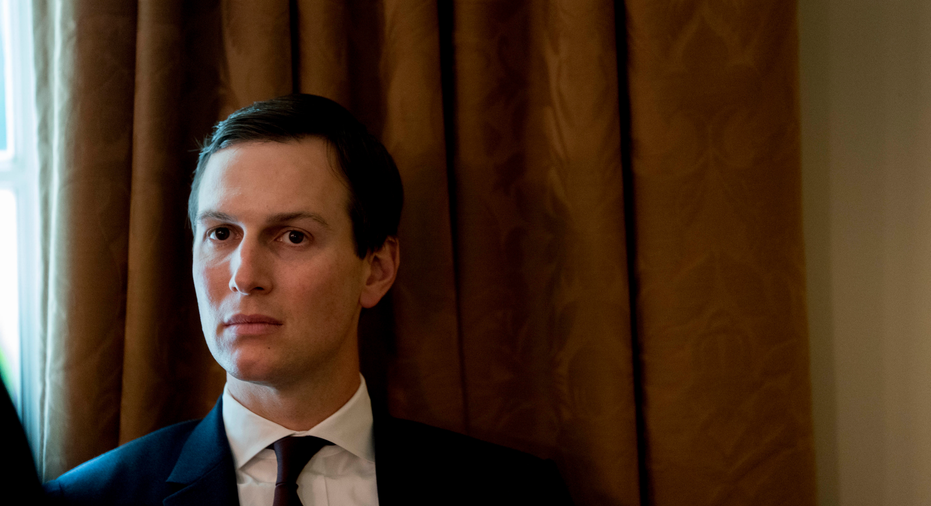Kushner Cos. fined $210K by New York for false documents
NEW YORK – The Kushner family real estate company was fined $210,000 by New York City regulators on Monday following an Associated Press investigation earlier this year that showed it routinely filed false documents with the city claiming it had no rent-regulated tenants in its buildings when, in fact, it had hundreds.
Separately, a watchdog group said Monday that former Trump lawyer Michael Cohen has engaged in the same practice, perhaps in a more brazen way, by telling the city that buildings he owned were empty, though tax records showed they were filled with tenants, many rent-regulated.
The city's buildings department fined the Kushner Cos. for filing 42 false applications for construction work on more than a dozen buildings when presidential adviser Jared Kushner ran the business. The AP report showed that the false paperwork allowed the Kushners to escape extra scrutiny designed to stop landlords from using construction to make living conditions for low-paying, rent-regulated tenants unbearable and get them to leave.
The Kushner Cos. said it relied on "third party consultants" to prepare its applications for construction permits and the errors "have been corrected or will be."
"In no case did the company act in disregard of the safety of our tenants," said spokeswoman Christine Taylor. "We look forward to presenting the facts before an administrative law judge and until then no amount is due."
After the AP report in March, the New York City Council and the New York state attorney general said they would look into the issue. Federal prosecutors in Brooklyn issued a subpoena to the company for documents.
The AP found that in three Kushner buildings in Queens for which false construction applications were filed, tenants believed the banging, drilling, dust and leaking water during construction were part of a targeted campaign to get them to leave. Many tenants did just that, and the number of protected rent-regulated units fell sharply in a little over a year, clearing the way for higher paying renters and making the buildings far more valuable.
The Kushners sold the Queens buildings in 2017 for $60 million, nearly 50 percent more than they had paid for them two years earlier.
In Monday's report about Cohen, the watchdog Housing Rights Initiative said the former Trump lawyer and his partners submitted more than 20 false applications for construction at three buildings claiming they were unoccupied and there were no rent-regulated tenants when, in fact, there were dozens. Housing Rights Initiative said tenants were posting complaints to the city about living conditions during construction, proof that there were indeed people living there.
"In order for Cohen to substantiate these claims, he would need to prove that ghosts exist," said Aaron Carr, executive director of Housing Rights Initiative, which also compiled the false filings by the Kushners earlier this year that led to the AP report.
Carr said that Cohen eventually sold the three buildings for $27 million, nearly triple what he had paid for them a few years earlier.
"Cohen commenced a deliberate campaign to systematically harass tenants out of their apartments using destructive, hazardous and illegal construction practices, so he could dramatically raise rents," he said.
Cohen's lawyer, Lanny Davis, declined to comment.
In one building at 237 Henry Street in Manhattan, tenants filed complaints about excessive noise and dust and construction beyond the scope of what was permitted by the city, according to the Housing Rights Initiative report. All 20 units in the building were protected by special rent regulations limiting rent increases and preventing tenants from getting pushed out, the report said, but once construction was done that number fell to five, which made it much more attractive to potential buyers.
In December 2014, about a year and a half after buying the building, Cohen sold it for $9 million, nearly triple what he and his partners had paid for it. That is gross profits, however, without subtracting for construction costs.
The other Cohen buildings in the report were at 172 Rivington Street and 235 East 27th Street, both in Manhattan.
Department of Buildings spokesman Joseph Soldevere said the agency "aggressively investigates" all complaints of improper construction.
Soldevere said nearly all of the permit applications for the Cohen properties include "tenant protection plans" designed to safeguard residents during construction.
He added that the agency issued a "stop-work" order at the Henry Street building and imposed fines of $16,090. He said six complaints at the other two buildings were investigated but no violations of city construction rules found.
___
This story has been corrected to show the building on Henry Street sold for $9 million, not $10 million.





















